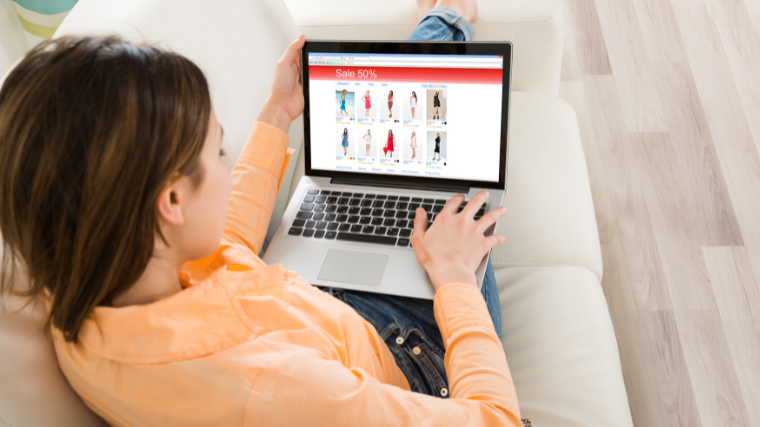When clients come to me for financial coaching, they frequently tell me about their excessive or impulse shopping and failure to control their spending. Here is some practical advice.
- Feed your brain before you go shopping. Do not go shopping when you are hungry. If you buy groceries on an empty stomach, you will tend to put more products into your shopping cart than you have initially planned and you will be more tempted to buy that chocolate bar in the check-out line. When you are hungry, your other decisions will not be well-thought-out either! Including those concerning purchases other than groceries, such as buying a new TV set or new shoes. Before you go out shopping, please make sure you eat something or at least bring a bottle of juice or anything else that will get you enough calories to feed your brain fast.
- Put some time between the desire to buy something and making the actual payment, especially online. Rather than pay right away, take a step back and give yourself some time to think. It is particularly helpful when you consider buying clothes, cosmetics, electronics or similar products because usually you do not need them right at this very moment. After you have put a day or two between you and your intended purchase, you may find that you do not need the item after all. Buy it only if you still believe that you need the item and that it is within your budget.
- Set how much time you can spend on shopping. When browsing through the shopping racks, especially online, you will eventually find yourself buying something. Especially that the best experts make sure we spend as much time shopping as possible and consume beyond any measure. After all, there are thousands of goods that would be nice to have. But that doesn’t mean you have to actually buy them! One of the methods to regain control over time spent shopping is to set aside a specific amount of time, let’s say 30 minutes, and set an alarm clock to remind you that your time is up. Don’t shop out of boredom.
- Shopping just to make yourself feel better is a trap! A moment of thrill when making a purchase frequently leads to financial problems, a sense of shame and loss of control, or conflicts with your loved ones. The way our brain works, particularly the reward centre, may prompt us to follow our impulses, our habits, emotions and the need to get instant gratification. Work out more constructive ways to regulate your emotions. This is of particular importance for people whose psychological financial identity is that of a hedonist. I’ve described several types in my article Money personality and its impact on life. Its impact on how you handle and feel about money.
- Do not build your sense of self-worth on the assets you have! It will be unstable as the foundations are fragile and illusive. It will also lead you to constantly compare yourself with others, which will result in a low self-esteem and living under pressure. In addition, such comparisons will drive you in toxic materialism that will lower your sense of happiness. You will find more information on that mechanism in my article “Why toxic comparisons with others lower your life satisfaction?”.

Neuromarketing, or why we are falling into shopping traps
Neuromarketing is the study of how our senses and our brain influence our shopping decisions. In his book “Buyology. Truth and Lies About Why We Buy”, Martin Lindstrom claims that our subconsciousness controls about 85% of our consumer behaviours. Companies spend huge amounts of money to induce clients to buy their products and use the latest techniques to increase sale volumes and influence the clients’ purchase decisions.
They also employ merchandising specialists who are responsible for inducing clients to make a purchase by choosing the right way to present goods on a shelf, by designing the visual appearance of the entire store, including the aisles, lighting, music, smell, colours or product displays. Eye level is buy level and products placed at your eye level are the ones sellers actually want you to buy.
However, if you look below the eye level shelves at products that get less visibility, you may find that the price is more attractive and the quality is just as good as the quality of products at your eye level.
How to make yourself more resistant to marketing tricks?
If you want to make a large purchase – let’s say you want to buy electronics/household appliances or a car – write down a list of criteria that are important to you and give them weights, e.g. points on a scale from 1 to 5, where 1 means that a given feature is less important and 5 means that it is of key importance. Then evaluate the brands you are considering to see whether they meet your requirements and to what degree.
- Don’t overdo in-depth research Even if you gather hundreds of details on dozens of products in the category you are interested in and on current promotions, you will still be unable to process such amounts of data and make a reasonable comparison to choose the best product in objective terms. All you will get from looking at too many fridges, cars or hotels is irritation, fatigue and overstimulation. In the end, your purchase may not be as well-chosen as it could have been, had you considered only a few (no more than a dozen) options.
- Pay cash. Most people are more in control of their spending when they pay in cash rather than with a payment card. It takes more time to take cash out of your wallet than to put your card or your mobile phone to the payment terminal reader, so you have more time to reflect on your purchase. Also, when you are paying cash, you are more aware of how much you are spending. And when you have no cash in your wallet, you will need to put some extra effort to go to an ATM and withdraw it. That, in turn, will give you extra time for you to cool off and to think whether you actually want to buy a product at this very moment. Paying with a payment card seems painless; at least until you have seen your bank account statement...
- To increase control over your spending, it is a good idea to set daily and monthly limits on card payments and on online shopping. Obviously when you are out of your limit and you really need to make a given purchase, you can easily set a higher one-off limit or change the daily limit in your account.
- Does it ever happen to you that you come home from shopping and realise that you forgot to buy something? Or, the opposite, you come home and realise that you have bought more than you have planned? Make a list, whether you shop in traditional shops or online. This will help you save time because you will buy everything you need at once and on the other hand, it will be easier for you to resist blind packing several products to your cart, including the virtual one.
- Don’t feel embarrassed to return a product that you bought and don’t really need. Sellers know perfectly well that the so called commitment trap often prevents us from withdrawing a decision we’ve already made, including a purchase decision. So rather than try to convince yourself at all cost that you’ve made a rational purchasing decision, simply return the item – in accordance with the applicable laws (consumer rights and store regulations).
- If you feel remorse or shame after shopping, rather than blame yourself again (which unfortunately often triggers behaviours you blame yourself for, because you want to feel better), take a moment and think why you acted like that again. Ask yourself these questions: What was my mood at that moment? What triggered this unplanned purchase? What types of ads/commercials or promotional activities resonate most with me?
Compulsive Buying Disorder is much more serious than impulse shopping. It is a kind of behavioural addiction characterised by excessive and uncontrolled buying of various products that are frequently unneeded or buying them in excessive amounts. In such a case, it is worth seeking help from a psychotherapist or a psychiatrist.
For more on that topic and how a financial coach can help you read my article Financial coaching vs. financial advisory.

